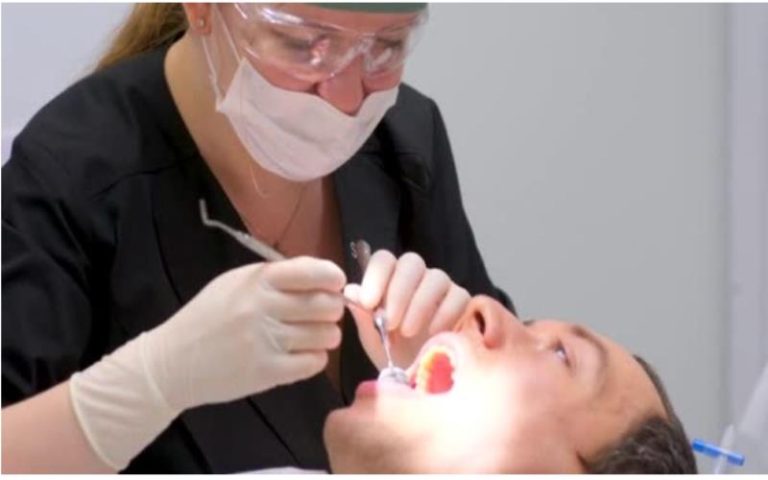Dental Insurance Planning for Retired Military Personnel: Tips for a Confident Smile

Introduction
Retirement is a time to focus on health and well-being after years of dedication and service. For retired military personnel, dental care becomes an essential aspect of overall wellness that can require advanced planning. While service members may have grown accustomed to dental benefits during active duty, the landscape changes considerably in retirement. Recognizing the importance of dental insurance and knowing how to navigate the available optiondental insurance’s importance and navigating phase. Proactive preparation can help prevent unexpected costs and support optimal dental health for years.
Special Considerations for Retired Military Personnel
Retired military personnel often encounter a transition in their dental coverage as they shift away from military-sponsored health benefits. This change can be a new experience, and it is crucial to become familiar with post-becoming’s specific needs and circumstances. The most essential steps involve determining eligibility for specialized dental benefits. For instance, learning who qualifies for VA dental care is a valuable starting point for many retirees. Specific individuals, such as those with service-related dental disabilities, former prisoners of war, or veterans enrolled in specific health programs, may qualify for additional dental care options. Taking the time to identify available benefits can influence the type and extent of dental coverage in retirement.
Exploring Dental Coverage Options
There are various dental insurance plans available for retired military personnel. Many retirees may choose to investigate private dental insurance plans, which often feature tiered levels of coverage according to personal needs and budget. Government-sponsored dental plans are designed for veterans and their families, and these programs prioritize preventive and essential dental services over cosmetic or elective procedures. Additionally, dental discount plans are an option that allows individuals to pay a reduced fee directly to participating dentists. Each coverage alternative presents distinct advantages in terms of cost, provider choice, and scope of care. Reviewing plan details, such as which procedures are covered and what out-of-pocket costs are expected, allows retirees to select the coverage that best aligns with their anticipated dental requirements.
Managing Dental Insurance Costs
Budgeting for dental care in retirement is a key part of a comprehensive insurance plan. While dental premiums are an obvious expense, there are a variety of costs to keep in mind, including deductibles, copayments, and coverage limits on different plans. Retirees need to know their plan’s annual maximum—the total amount a plan will pay for services in a year—and any exclusions on specific types of dental care. Making an apples-to-apples comparison between plans is often best achieved by calculating expected annual dental expenses and seeing how much each insurance policy will cover, versus how much may need to be paid directly. In addition, preventive services—such as cleanings and exams—are frequently covered at a higher percentage, reducing the need for costly intervention later. Planning and using all benefits provided by the chosen plan will optimize both health outcomes and financial peace of mind.
Choosing the Right Dental Provider
Selecting an appropriate dental provider is another vital component of effective dental insurance planning. Many retired military personnel are accustomed to dental care through designated military health facilities, and the shift to civilian providers entails some adjustment. When searching for a provider, retirees should confirm whether the dentist accepts their insurance, the range of dental services provided, and if the office is equipped and comfortable with caring for veterans. Accessibility and proximity to home can also influence provider choice, making regular preventive care more convenient. High-quality dental providers typically encourage open dialogue about a patient’s medical and service background, which supports effective and tailored care. Establishing a strong relationship with a trustworthy provider simplifies the process of ongoing dental maintenance and preventive care in retirement.
Maintaining Oral Health During Retirement
Consistent dental care is fundamental for preserving oral health and enhancing quality of life during retirement. Scheduling twice-yearly dental checkups, cleanings, and any necessary follow-up care is a reliable strategy to prevent the progression of concerns into major oral health issues. Brushing at least twice a day with fluoride toothpaste, flossing daily, and maintaining a balanced diet are daily routines that support strong teeth and healthy gums. In addition, retirees may be more susceptible to age-related dental conditions, such as dry mouth, gum recession, or tooth sensitivity, for which regular professional evaluations are essential. Coordinating dental care with other healthcare providers, particularly when managing chronic conditions or medications that affect the mouth, helps ensure a comprehensive approach. Maintaining good oral health contributes to overall wellness and bolsters confidence in daily life.ion
Conclusion
Dental insurance planning for military personnel presents a valuable opportunity for maintaining well-being in retirement. Recognizing eligibility for dental benefits, selecting the right coverage, and budgeting smartly can make a significant difference in health and finances. Retired service members can enjoy the rewards of a confident, healthy smile in their retirement years by identifying qualified dental providers and committing to preventive care routines. Prioritizing informed choices today lays the groundwork for lasting oral health and genuine peace of mind. Consistent dental checkups help catch issues early, reducing the risk of costly treatments later. Many plans offer coverage, screenings, and preventive services, ensuring access to comprehensive care. Understanding the specifics of coverage options helps maximize benefits and avoid unexpected expenses. Taking advantage of educational resources and support networks for veterans can also aid in making the best decisions. With the proper planning, dental care can remain a manageable and essential part of a healthy retirement lifestyle.






